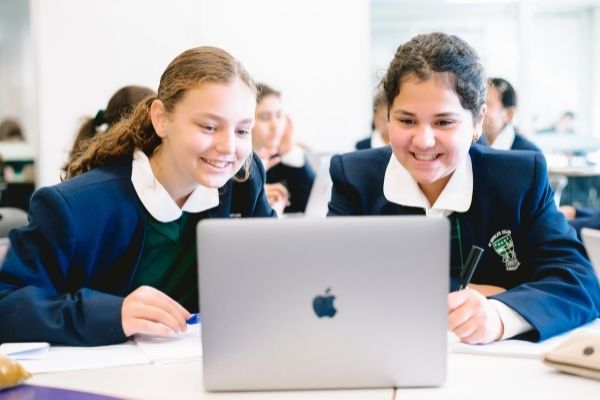All schools including Sydney Catholic Schools follow the same Kindergarten to Year 12 curriculum, with our Catholic values underpinning everything that we do.
With a focus on the development of the whole person, courses offered at the school cover the NESA syllabus requirements – developing the core skills of literacy and numeracy – and our Archdiocesan Religious Education curriculum.
Our teachers extend and challenge students to be the best they can be, while recognising that every student is unique and learns differently.
Selective Program
At St Ursula’s our selective program is called the Newman selective after John Henry Newman who was a theologian and scholar within the Catholic church during the 19th Century.
Entry into our selective program is very competitive and is determined through a combination of the following :
- Higher Ability Selection Test (HAST) conducted by ACER
- Allwell Testing which is an academic placement test
In both of these externally administered assessments, students are assessed in a series of tasks:
- Abstract Reasoning and Problem Solving
- Mathematics
- Reading Comprehension
- Written Expression
- Spelling.
As well as these assessments student may present as part of their application
- Previous psychometric assessments
- Primary School performance including reports and teacher recommendations
Our Newman Classes are all staffed by teachers who have specific post graduate qualifications in Gifted Education. This ensures that each girl not only achieves her “potential” but that she surpasses it.
Using Robert Gagne’s Differentiated model of giftedness and talent theories, teachers craft learning opportunities for their classes. Some will be offered curriculum compaction, others acceleration , others passion projects, others extension. Each one designed to foster natural curiosity and stretch each girl’s capacities.
Currently the school offers acceleration in Mathematics and Hospitality enabling successful students the opportunity to complete HSC units prior to their Year 12 studies.


